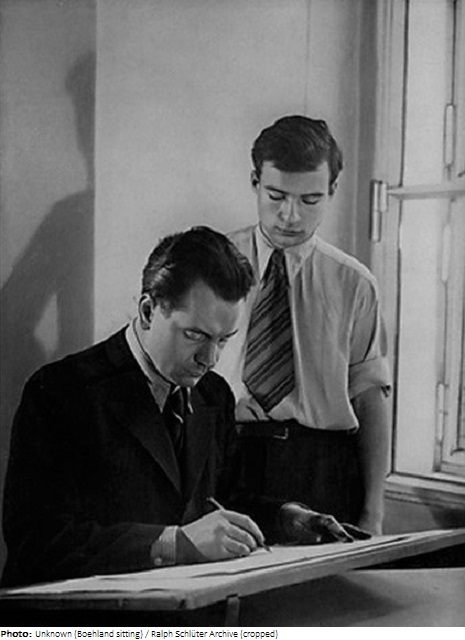
| Roles | Competed in Olympic Games |
|---|---|
| Sex | Male |
| Full name | Johannes Ludwig Richard•Boehland |
| Used name | Johannes•Boehland |
| Born | 16 April 1903 in Berlin, Berlin (GER) |
| Died | 5 September 1964 (aged 61 years 4 months 19 days) in West-Berlin, Berlin (GER) |
| NOC |  Germany Germany |
Johannes Boehland was a painter and graphic artist. Among other things, he developed various typefaces. After studying in Berlin, he worked as a graphic designer at the National Porcelain Factory in Berlin from 1926. Beginning in 1929, he had teaching assignments at various universities, including the University of Fine Arts in Berlin, while in 1945-49 he was Head of the Department of Graphic Arts and Crafts School in Wiesbaden. From 1951 he was Director of the School of Art in Wiesbaden. In addition, he lectured for some time at the Berlin School of Art and the Master School for Graphic Arts and the Book Craft and worked as an illustrator.
The works submitted in 1932 were paintings on porcelain. At the Automobile Club of Germany’s (AvD) 10,000 km race in 1931, the largest motorsport event up to that time, a Czech Aero 662 won the gold medal. The route led from Berlin via Lisboa, München, Zagreb, and Wien back to Berlin. In 1936 Boehland designed the logo for the Games in Berlin. Already in 1932, the organizing committee of the Olympic Games in Berlin had developed a bell as a signet bearing bore a banner with the inscription “I call the youth of the world!”. At the suggestion of Theodor Lewald, he combined the bell with an imperial eagle holding in its claws the five Olympic rings.
| Games | Discipline (Sport) / Event | NOC / Team | Pos | Medal | As | |
|---|---|---|---|---|---|---|
| 1932 Summer Olympics | Art Competitions |  GER GER |
Johannes Boehland | |||
| Painting, Unknown Event, Open (Olympic) | ||||||
| Painting, Unknown Event, Open (Olympic) | ||||||
| 1936 Summer Olympics | Art Competitions |  GER GER |
Johannes Boehland | |||
| Painting, Unknown Event, Open (Olympic) |